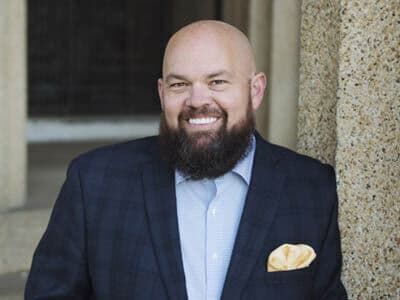New research helps explain unexplained strokes in younger adults
News > Health News

Audio By Carbonatix
8:01 AM on Thursday, April 17
By American Heart Association News
In adults under age 50, strokes caused by clots are on the rise – and many happen without a clear link to a traditional cause such as high blood pressure. A new study suggests the underlying reason for these unexplained, or cryptogenic, strokes could hinge in part on whether someone has a type of hole between the upper chambers of the heart.
The findings show that cryptogenic strokes in participants with a patent foramen ovale, or PFO, were much more often caused by risk factors considered nontraditional, such as a history of chronic kidney disease, cancer or blood clots in veins, than what was seen in stroke survivors without a PFO.
But overall, migraine with aura, or sensory disturbances such as flashes of light, was the leading nontraditional cause linked to cryptogenic strokes, especially among women and people with a PFO. Although typically harmless, a PFO can increase stroke risk.
The study was published Thursday in the American Heart Association journal Stroke.
"We were surprised by the role of nontraditional risk factors, especially migraine headaches, which seems to be one of the leading risk factors in the development of strokes in younger adults," lead researcher Dr. Jukka Putaala said in a news release.
While traditional risk factors for stroke include high blood pressure, obesity, Type 2 diabetes, smoking and high cholesterol, "our results should inform the health professional community to develop a more tailored approach to risk factor assessment and management," said Putaala, head of the stroke unit at the Neurocenter at Helsinki University Hospital in Finland. "We should be especially asking young women if they have a history of migraine headaches and about other nontraditional risk factors."
The research also found that risk factors specific to women, such as gestational diabetes, preeclampsia or other pregnancy complications, were more common in women who'd had a stroke, regardless of whether they had a PFO, than in women who'd never had a stroke.
For the study, researchers analyzed health data from 523 adults ages 18-49 with and without a PFO who'd had a cryptogenic ischemic stroke and compared them with 523 people of similar ages but no history of stroke. The data came from the Searching for Explanations for Cryptogenic Stroke in the Young: Revealing the Triggers, Causes, and Outcome, or SECRETO, study. Participants were enrolled at 19 health centers across 13 European countries from late 2013 until early 2022.
Researchers looked for links between participants' strokes and 12 traditional and 10 nontraditional risk factors, as well as five risk factors specific to women.
In stroke survivors with a PFO – after accounting for factors such as age, sex and level of education – the study found that each additional nontraditional risk factor more than doubled the odds of an ischemic stroke. In those without a PFO, each nontraditional risk factor increased the odds by 70%.
Researchers noted that the findings do not show cause and effect because of the observational nature of the study, meaning it was a review and analysis of existing data. Also, because 95% of the participants were white adults of European descent, it's unknown whether the findings would apply to other populations.
The study's breakdown of data by participants' sex and age is helpful because stroke risk changes accordingly, Dr. Tracy E. Madsen said in the news release. Madsen, who was not involved in the new study, is vice chair of research in emergency medicine and director of the EpiCenter at the University of Vermont's Larner College of Medicine in Burlington.
"For instance, recent data shows that younger women may have a higher risk of stroke than younger men. However, during middle age, men usually have a higher risk," she said.
Madsen said that recognizing specific risks that affect women and that are not commonly seen, such as pregnancy complications and migraine with aura, "could change our approach to screening for these risks and educating our patients throughout their lives."
Putaala noted that as many as half of all ischemic strokes in younger adults are cryptogenic.
"For effective prevention, careful and routine assessment of both traditional and nontraditional risk factors in younger people is critical," he said.
American Heart Association News covers heart and brain health. Not all views expressed in this story reflect the official position of the American Heart Association. Copyright is owned or held by the American Heart Association, Inc., and all rights are reserved.







